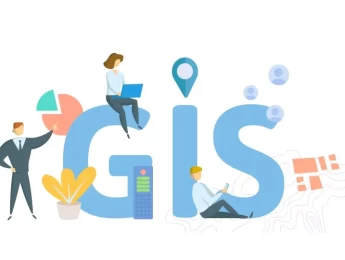Event coordination is vital for many successful organisations as it allows them to directly engage with their clients and increase their rapport and reputation in an exciting way that feels rewarding to the client. For these events to be successful, marketing event officers are crucial to this process.
Marketing event officers are professionals responsible for planning, promoting, and managing the event to ensure its success. Those in this role must obtain a variety of skills, including communication, marketing, and design. These skills will contribute to their ability to research the target audience, plan and design the venue to be appealing, and ensure these all fit within their feasibility study.
Not only is planning the event important, but also managing the event as it is active. Communicating with guests and managing the different features and functions will ensure maximum productivity. Engaging with guests will enable the event officer and organisation to build a stronger relationship with them, which can lead to further exposure or business opportunities.
Upon completion of this course, participants will be able to:
- Understand the importance of effective marketing to an event's success.
- Describe a certified marketing event officer's core skills, competencies, and responsibilities.
- Recognise the immediate and lasting consequences of poor event marketing.
- Explain various marketing strategies and their benefits and limitations.
- Analyse the economic and social development of an organisation based on the success of its marketing.
- Conduct a feasibility study of an event to support and promote a proposal to an event client.
- Manage a team effectively, delegate tasks accordingly and provide guidance and mentoring where necessary.
This course is designed for individuals within event management who aspire to become a certified marketing event office and those within the role who wish to develop their knowledge. It would be most beneficial for:
- Marketing Event Officers
- Event Coordinators
- Financial Advisors
- Sales/Marketing Managers
- Event Managers
- Business Owners
- Strategy Officers
This course uses a variety of adult learning styles to aid full understanding and comprehension. Participants will investigate case studies of real examples of events to highlight key functions that lead to its success and potential areas for improvement. To ensure the participants can fully understand the content taught, they will partake in various learning methods, including presentations, discussions, video materials, and group activities. This guarantees that the participants can understand the knowledge in-depth and practise any related practical skills.
Day 5 of each course is reserved for a Q&A session, which may occur off-site. For 10-day courses, this also applies to day 10
Section 1: Introduction to Event Marketing
- Defining what event marketing is, its necessity and importance for a business.
- What roles are involved within event marketing, and what are their typical skills, competencies, and responsibilities?
- Exploring the influence events hold over organisation reputation, client satisfaction and overall success.
- Examining the ethics and morals surrounding event planning, marketing, and management.
- Investigating past and present event trends and predicting potential future trends.
Section 2: Event Feasibility and Proposal Creation
- Explaining what feasibility is within events and the importance of feasibility studies.
- The concepts, principles, and standards of conducting a feasibility study.
- Identifying what components contribute to the event's feasibility and how to maximise these.
- Establishing event goals and objectives and aligning these with feasibility.
- Creating an event proposal detailing feasibility results and setting the measurements of success.
Section 3: Managing Finance and Budget
- Balancing event budget with ideal goals and expectations.
- Assessing the reasonableness of the budget and managing financial expectations.
- Exploring the different methods of financing an event – bars, catering, merchandise and more.
- Obtaining sponsorships from participants organisations and VIP guests.
- Identifying financial risks throughout the event process and methods of mitigating them.
Section 4: Managing Functions
- Coordinating all vital event assets – entertainment, catering, security and more.
- Ensuring all lighting, decoration, special effects, and others are all within the event theme.
- Establishing back-up alternatives for functions wherever possible.
- Understanding the varying requirements depending on event type and location.
- Communicating effectively with all employees to ensure maximum productivity.
Section 5: Meeting Guests Needs
- Researching the target audience to understand how best to meet their needs.
- Ensuring venue and event accessibility for all individuals.
- Establishing a separate area for VIP or celebrity guests offering a private and hands-on service.
- Communicating with guests during and after the event to gain constructive feedback.
- Building positive relationships with all involved parties to increase trust and reliability.
Upon successful completion of this training course, delegates will be awarded a Holistique Training Certificate of Completion. For those who attend and complete the online training course, a Holistique Training e-Certificate will be provided.
Holistique Training Certificates are accredited by the British Assessment Council (BAC) and The CPD Certification Service (CPD), and are certified under ISO 9001, ISO 21001, and ISO 29993 standards.
CPD credits for this course are granted by our Certificates and will be reflected on the Holistique Training Certificate of Completion. In accordance with the standards of The CPD Certification Service, one CPD credit is awarded per hour of course attendance. A maximum of 50 CPD credits can be claimed for any single course we currently offer.
- Course Code IND15-104
- Course Format Classroom, Online,
- Duration 5 days














